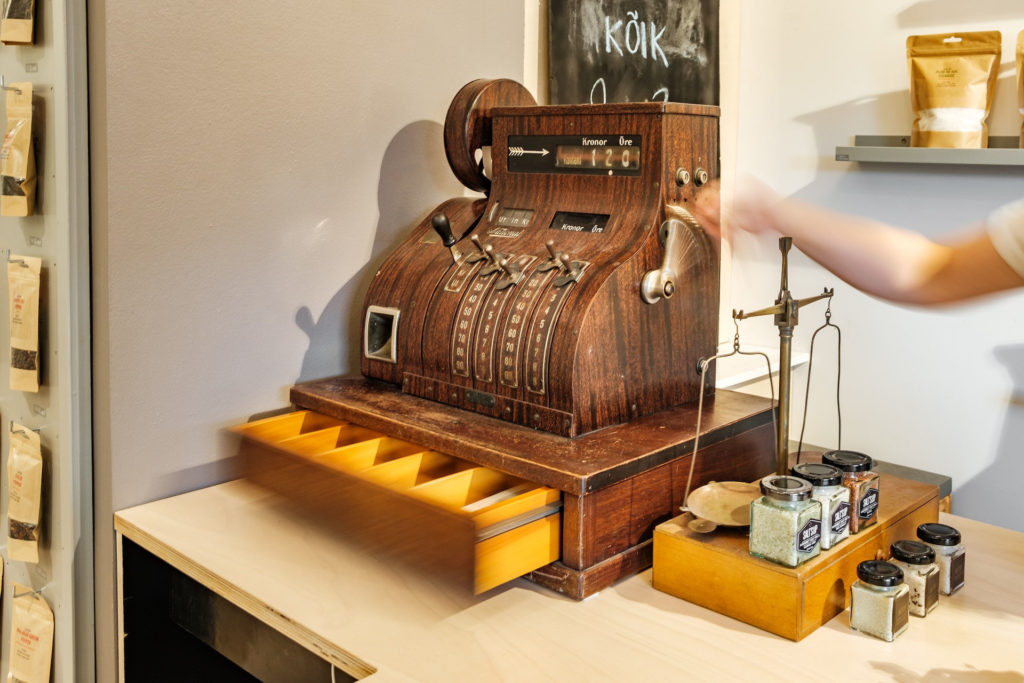Finding Self-Worth in a Capitalist World as an “Unsuccessful Entrepreneur”
What does self-worth mean in a capitalist world? For many years, social advocates and policymakers have played with the idea of quantifying the worth of the environment and human wellbeing, but from the paradigm of commodification, assessments such as these will always be unsuccessful in addressing larger social issues. Revolutionary choices toward inherent social values can only happen through an interruption in our capitalist matrix, not because capitalism is evil, but rather because a capitalist psyche cannot compute the notion of pricelessness. Yet, without inherent worth, we are only creating spiritual debt for ourselves and for collective humanity.
Success in review
As the year 2023 comes to an end, I’ve noticed myself spontaneously reflecting on what I’ve accomplished this year. At first glance, I’m met with a grand void of emptiness: unfulfilled endeavours, silent rejections, unfruitful investments, and a continued stagnancy of income. But when I consider my actual experience and what I achieved during the year, I can only conclude that I’ve been quite productive, and life has been abundant.
From the tangible standpoint, I designed three card decks, rebranded my personal website, opened and closed an Etsy store (now relocated to my artwork page for art prints and www.flourishingcommons.com for digital products and other merchandise), edited a book), got certified as a forest therapy guide, wrote two research proposals, and moved homes (completely with new furniture). While this list alone is enough for the perfectionist in me to give myself a pat on the back, it is my intangible achievements that call to be self-recognized: the inner demons fought and won, the integrity weathered and protected, the newfound appreciation for the here and now, and the lessons learned in maintaining boundaries, acknowledging humility, and trusting in surrender.
Without the identity of being an employee, an academic, or an income-sustaining entrepreneur to hold as validation for my self-worth, life has been teaching me to investigate, redefine, and recommit to a new definition of success. I’ve noticed, however, that this new version of success, yet to be fully formed, is beyond personal. With the growth of anti-work ideology, the expansion of social media careers (e.g., YouTubing, Influencer marketing), and the low-entry cost for various side hustles and solopreneur opportunities (e.g., e-commerce, online coaching), we are witnessing a collective shift in humanity’s relationship with work, worthiness, life purpose, subservience, and self-leadership.
This shifting of our collective psychological relationship to worthiness has inevitably created some instability and rifts in our manifested world—a political and economic social environment that is used to seeing value through scarcity. This paradigm so familiar to us is the foundation to our commodity market systems.
Shifting economics: from use and exchange value to inherent value
From the lens of not enough, we create value through psychological hierarchies and competition that result in the commodification of natural “resources” and human “labour.” Commodities, according to classical political economy, function through use-value: something tangible and material becomes valuable because it has the benefit of utility. However, use-value must be accompanied by exchange-value, according to Karl Marx, for things to become commodities. Exchange-value is a social phenomenon used to establish trading deals between parties, often through the transactional medium of money.
I consider this description of commodities as an “add-on” approach to understanding value. We start at zero worth to create value in something through psychological determinations of usefulness and exchangeability. From this perspective, what can be commodified is anything we want or need, from entertainment to décor, to even water, housing, work, and love, as long as we do not comprehend the item’s inherent value. On the other hand, if we start with the notion that an item has intrinsic worth, then the act of commodification becomes the creation of debt. We diminish an item’s worth to usability and exchangeability through a “reduced value” process. What can be commodified are then only things that we don’t value as part of life.

The unfathomable idea of pricelessness
For many years, social advocates and policymakers have played with the idea of quantifying the worth of the environment and human wellbeing: How much ($) value does a park offer in comparison to a shopping mall? How many lives can we save by reducing pollution? How much will it cost the healthcare system if we don’t take care of homelessness? How many jobs can we create out of a budding industry to maintain an economy of seemingly healthy useful consumers?
From an add-on value perspective, assessments such as these will always be unsuccessful in addressing larger social issues. Revolutionary choices toward inherent social values such as affordable housing, universal basic income, and mental health funding can only happen through an interruption in our capitalist matrix. This isn’t because capitalism or human beings are evil, but rather, it is because to see inherent worth through capitalism is a challenge: our mental cash registers cannot handle the idea of pricelessness.
This revelation came to me one day as I stared mindlessly at a bouquet of dried flowers that I had bought for myself months ago for my birthday. Frustrated and somewhat despaired over the lack-mentality that I had inherited from my family line and the collective unconscious, a limitation that I couldn’t seem to get over to make the law of attraction work for me, I remembered that I had the ability to sense the infinite value of nature’s beauty. Even though a part of me was still loyal to the tribal paradigm of scarcity, another part of me was already receiving the infinite abundance of the universe without fully realizing it.
So, while I agree with the basic Marxist theory that capitalism (as we have seen it historically and as a system of commodification) is unsustainable and that social revolution is inevitable because of conflicts arising from hierarchies, I do not see a successful social revolution manifesting as a political process (via class-struggle, socialism, communism etc.). The real revolution, instead, is a spiritual one: the gradual evolution of humanity to know ourselves as forgivable, lovable, priceless, and worthy without conditions.
So, what does self-worth in a capitalist world mean?
As long as the human ego runs the world, political ideologies such as socialism and communism will not solve social issues (and in fact would create more suffering as we have witnessed historically), so it’s safe to say that capitalism will be with us for a very long time. However, as we shift the paradigm from add-on value to inherent value, internal and external negotiations must happen.
A major trial that I discovered through the work I’ve completed this year is the challenge of choosing my intuition and creative flow over what other people (on the Internet, from peers, family, tradition or normative society) would think or value. Thoughts that did not align with what life asked of me kept arising in my mind, testing my loyalty to my inner integrity and self-acceptance. Critical thoughts such as:
- I need income to be an adequate human being.
- Print-on-demand (POD) and drop-shipping is a lazy way of doing business. Only greedy people who think they can make fast cash will choose this route over hard work and capital investments.
- Who is going to buy that (t-shirt, notebook, etc.) at that premium price when you can buy it at the discount store for a fraction of the cost?
- Self-publishing is for authors who are not good enough to be chosen for traditional publishing.
Everything I sell is POD and drop-shipping. I’m not interested in storage, packaging, and upfront investments. And frankly, I’m not even interested in business (hence, the “unsuccessful” entrepreneurial mindset). From the start, I saw POD as an outlet for creative expression with the possibility of some financial return. But in learning the process, I’ve come across many YouTubers who do entice viewers into believing that POD is fast cash. The challenge for me has been to disidentify with the collective scarcity mindset that diminishes the inherent value of my work.

Can my creativity, wisdom, and love be quantified with a dollar value? The answer is: only if I choose to see them through a reduced-value lens. But then, I would be creating debt—a debt owed to my self-worth and the collective worth of humanity. Yet, in a capitalist trade, a dollar value must be assigned. Despite my idealism, I’m not naïve enough to think that no one has been exploited in our global web through the production of any commodity. I do realize, however, that within my control is the choice to not exploit myself in the process.
I’ve also come to realize in recent years that academia (or formal education in general) is not just a place to nurture knowledge. This “institution for knowing” is also a place where we are trained into the imposter syndrome—a condition where we doubt our inner knowing and become reliant on external evidence (through people, alive or dead, and materiality) for validation. While I am open to traditional publishing in the future, I recognize that it was in my destiny to self-publish my first book; firstly, because I was inspired to do so; secondly, because I am aware of how I don’t conform to major publishing trends; and thirdly, I needed to learn how to find validation in myself first.
I am richer than I’ve ever been, spiritually and financially, and yet my ingrained beliefs about the value of work have kept me lingering in poverty. As these beliefs loosen their grip on my psyche through choices of self-worth, I’ve noticed a paradoxical phenomenon: the less I hold onto the external world for identification and validation, the more abundant I feel inside.
In New Age terminology, a dollar invested in the fear of not enough is vibrationally less than a dollar invested in self-worth. Likewise, an hour spent to maintain systems of not-enoughness is not the same as an hour spent on activities that promote inherent worth. The next dimension to use-value and exchange-value, perhaps, could be called choice-value: the choice to see value beyond the limitations of what it has been known to be before.